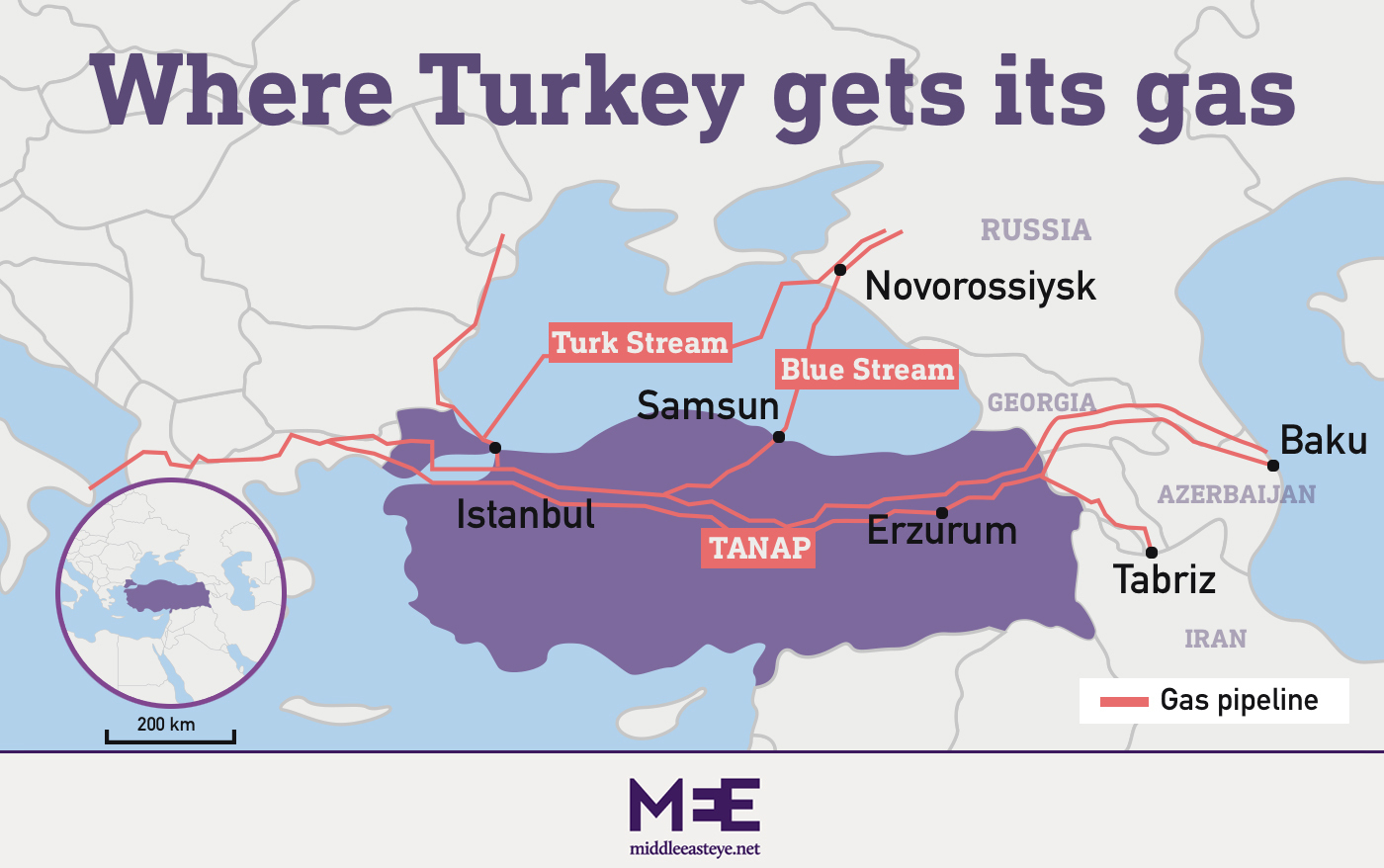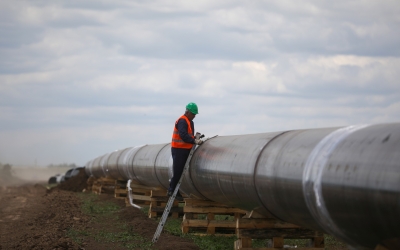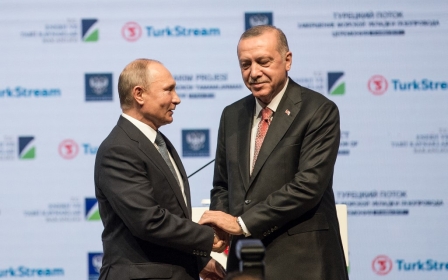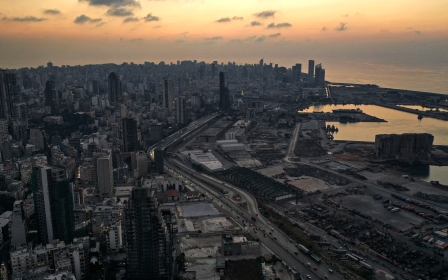Could Turkey become a gas hub for Europe?
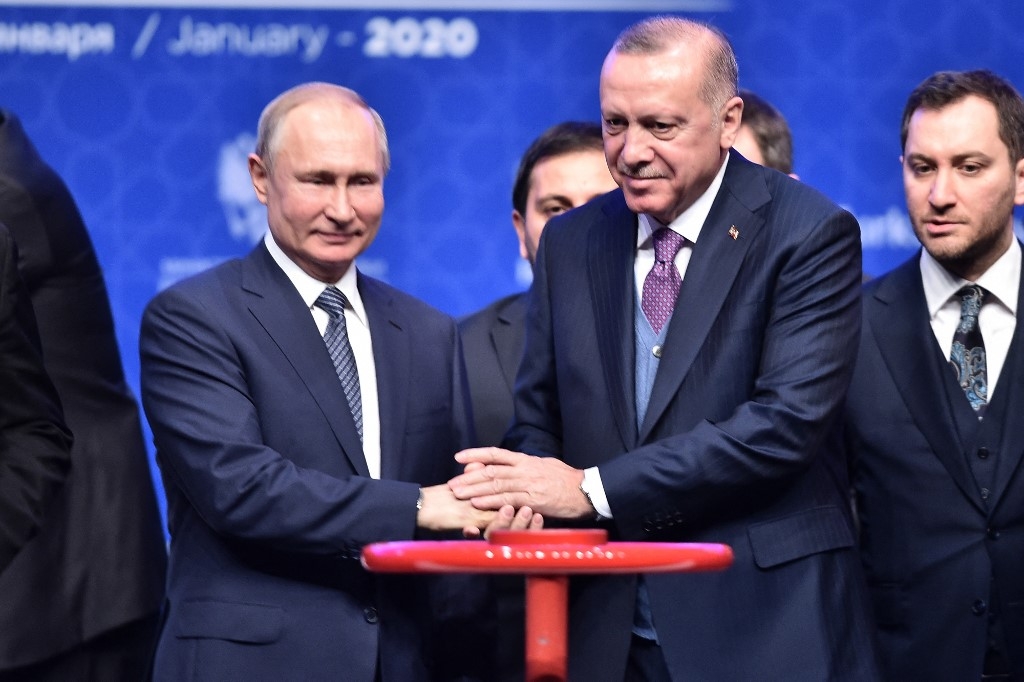
When Russian President Vladimir Putin proposed to establish a gas hub in Turkey last month, Ankara spent no time accepting it. The Turkish leadership has long wished to promote itself as the ultimate centre for energy security and supply.
However, experts and officials say what the Turkish government wants and what Putin wants are two different things, and there are a set of technical issues that are hard to resolve.
“Putin’s proposal isn’t concrete, it seems like an idea,” says Gokhan Yardim, former general manager of Turkish oil and gas pipeline company BOTAS.
“Is this a hub for players from different countries to come and negotiate and buy gas? Or is it another pipeline project like the TurkStream which only passes through Turkey?”
Since the European Union decided to cut Russian gas imports by two-thirds due to the Ukraine invasion and unexplained explosions on the Nord Stream pipelines, effectively cutting Russia's exports to Europe, Putin has been looking for other ways to supply Moscow's neighbours to the west.
Turkish President Recep Tayyip Erdogan accepted Putin’s proposal and said last month that the gas hub would be established in Turkey’s Thrace.
Yet the current two TurkStream pipelines linking Russian gas to Turkey and Europe aren’t carrying sufficient enough loads to create such a hub. Each pipeline transports an annual capacity of 15.75bn cubic metres, and the sole purpose of one of them is feeding the growing Turkish hunger for energy.
Emin Emrah Danis, an energy expert based in Istanbul, says more pipelines would be needed to carry the Russian gas to Turkey, possibly requiring four years of construction time.
“But it will come with challenges,” he says. “Who is going to build it, since the companies wouldn’t want to be sanctioned? And who is going to pay for it?” TurkStream’s estimated cost was €11.4bn, around $12.5bn at the time.
Selling Russian gas
Once construction is completed there are other issues to address, such as maintenance and spare parts like turbines, which Russia couldn’t obtain from western countries for its Nord Stream pipeline. But there could be ways to ship some of the gas in liquid natural gas (LNG) form without building a pipeline.
“If it's just a lot of Russian gas shipped to Turkey, then the question is: who will be taking this 'Russian' marketed gas?,” asks Aura Sabadus, a senior energy journalist at Independent Commodity Intelligence Services (ICIS). “I don't see any European country signing long-term contracts with Russia at a time when REPowerEU [the EU Commission’s anti-Russia energy plan] says that Russian gas must be phased out by 2027.”
Several Turkish officials familiar with Ankara’s energy ambitions told Middle East Eye that what Turkey envisioned is more sophisticated than what people believe.
'If it's just a lot of Russian gas shipped to Turkey, then the question is: who will be taking this "Russian" marketed gas?'
- Aura Sabadus, ICIS
“We would like to emerge as a gas hub where multiple sources of gas are traded and sold by private entities,” one Turkish official said. “We don’t want to be the only transmitting country. We would like to get reselling rights for the Russian gas, and re-export it. We need a discount from Moscow to do it."
Turkey wants to blend Russian gas with multiple other sources from Azerbaijan, Iran, and Iraq - maybe even Israel and Ankara’s own Black Sea reserves - and resell it to Europe and other buyers.
Erdogan earlier this month said Turkey might have made a further discovery of reserves in the Black Sea, with an estimated additional 110 billion cubic metres of natural gas, bringing the total to 650 billion cubic metres in the area.
Turkey aims to produce an annual 14-15 billion cubic metres by the end of 2026. Estimates say the production may even go higher, with 19-20 billion per year by 2029, which is a fraction of the current European Union output today.
Achieving promenance
The officials say the ultimate aim is to reach a point where gas has a “Turkey benchmark”, a significant market that sets the price. They are aware that it is an ambitious plan that requires not only the approval of Russia but also other European countries.
“Turkey would need to put in place proper market conditions - for example, liberalise gas prices, unbundle BOTAS,” Sabadus says.
“A Turkish gas price benchmark doesn't appear because someone says there is a benchmark. A price is formed through trading, and trading happens when there is a multitude of players in the market that create competition and through competition a price."
Others say Turkey had actually approved the required legislation for such liberalisation in the early 2000s but didn’t follow through with it to actually create a free market of gas trading.
Sabadus adds that further legislation and EU regulations would have to be introduced in Turkey, from privatisation to certification of transmission operations, which in the past pushed the Nord Stream 2 AG into a myriad of legal complexities.
Moreover, Turkey would need to sign interconnection deals with neighbouring EU countries, including Bulgaria and Greece. Ankara would also need to comply with the EU's network codes for organising capacity bookings, which are supposed to be based on transparent actions and on a pre-established calendar.
Turkish Energy Minister Fatih Donmez last week said Turkey already has a national energy exchange in Istanbul and some experience on that front.
“Turkey is one of the countries with the richest resource inflow and diversity compared to peer centres in the world. There is gas inflow from almost 15 countries,” he said. “The Balkan countries as well as nations from the southeast and east of Europe contact us from time to time and demand gas purchases from Turkey."
Donmez said Turkey would convene a gas conference with all these nations in January and February and will try to create a roadmap.
“Here, there is the goal of creating a transparent, safe market and market where everyone can agree with a win-win logic,” he added.
Danis, the energy expert, argues that Turkey could deliver a reliable way to supply gas to Europe by including all the players, including Russia, as Ankara did when it successfully mediated the Ukraine grain deal.
"Turkey has already proved itself," he says.
Middle East Eye propose une couverture et une analyse indépendantes et incomparables du Moyen-Orient, de l’Afrique du Nord et d’autres régions du monde. Pour en savoir plus sur la reprise de ce contenu et les frais qui s’appliquent, veuillez remplir ce formulaire [en anglais]. Pour en savoir plus sur MEE, cliquez ici [en anglais].


